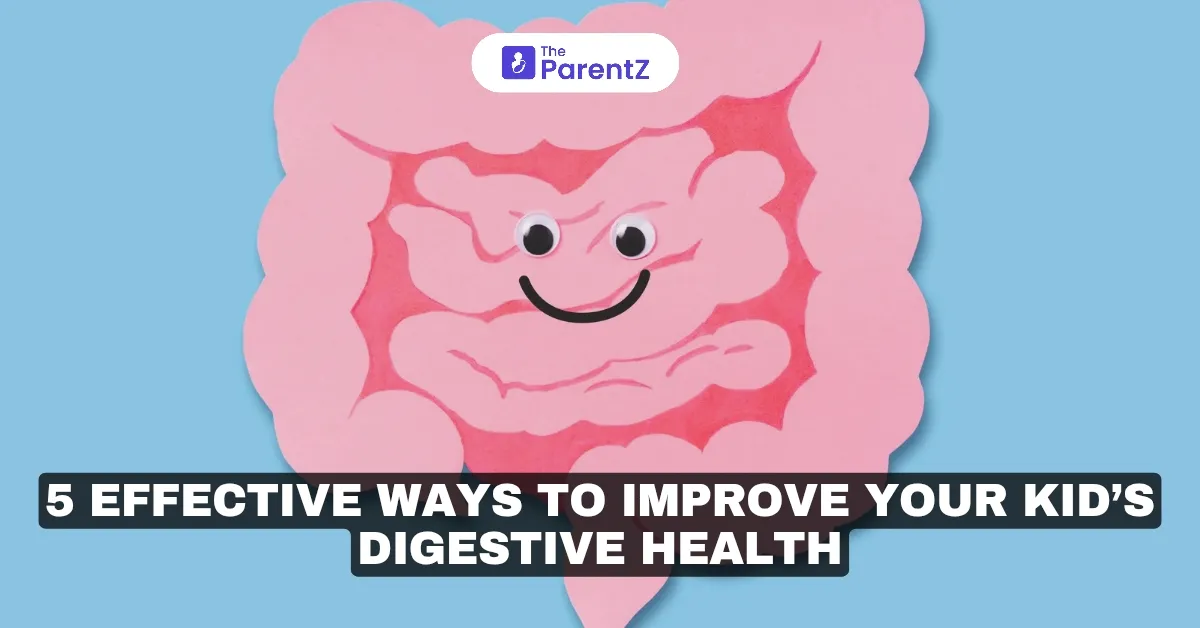One of the major concerns for every parent is what our kids eat. But have you ever figured out how well those little tummies are actually digesting it all? Well, the digestive health of a child is not just about processing food but also about nutrient absorption, immunity, and good health.
The fact is—digestive issues in kids are incredibly common. In fact, almost 50 percent of children experience digestive discomfort including bloating, constipation, and tummy aches, according to the American Academy of Pediatrics. If your child is often complaining about stomach pain and irregular bowel movements, it might be their gut health to be blamed.
Here are five effective ways to improve your kid’s digestive health.
Increase Fiber Intake for a Happy Gut
Fiber plays a big role when it comes to digestion; it helps food move smoothly through the digestive tract while preventing constipation, bloating, and discomfort. According to the American Academy of Pediatrics, the recommended intake for children is about 19–25 grams of fiber per day, depending on their age.
By incorporating whole grains, fruits, oats, brown rice, whole wheat bread, and vegetables instead of of sugary cereals, you can ensure your child gets enough dietary fiber. You can also add fiber-rich snacks, including apples, pears, carrots, and nuts, to their diet for keeping digestion in check and maintaining good gut health.
Ensure Plenty of Hydration
Water is essential for digestion. However, without enough fluids, the body struggles to break down food, eventually resulting in constipation and poor digestion. Since many kids don't drink enough water, it has become even more essential to focus on getting proper hydration.
According to health experts, kids should drink about 5–8 glasses of water per day, depending on their age. Hydration is indeed one of the simplest ways to support digestive health.
Introduce Probiotic and Prebiotic Foods
Probiotics are basically friendly bacteria that balance gut environment while improving digestion. So, if your child often experiences stomach discomfort, adding probiotics can certainly help. Here are some incredible probiotic sources:
- Yogurt
- Kefir
- Homemade pickles
- Fermented foods such as idli, dosa, and kimchi
But probiotics need prebiotics. Here are some good prebiotic-rich foods:
- Bananas
- Garlic
- Onions
- Whole grains
Reduce Processed and Sugary Foods
The truth is—no kid can resist their love for junk food. Unfortunately, excessive processed snacks, sugary delights, and carbonated drinks can disrupt gut bacteria balance and slow down digestion, eventually leading to bloating, constipation, and acid reflux.
Therefore, instead of packaged snacks, consider replacing them with healthier homemade snacks such as:
- Fruit slices with peanut butter
- Homemade granola bars
- Roasted nuts and seeds
Encourage Regular Physical Activity
Yes, movement too plays a huge role in digestion. In easier words, when kids are active, their bodies process food more efficiently. In fact, in a study, it was revealed that kids who engage in at least 60 minutes of physical activity daily have better digestive health comparatively.
Therefore, you can encourage them to play outdoor games like football, cycling, and skipping in addition to family walks after meals and replacing screen time with active play.
Exercise can thus improve digestion and promote healthy gut, keeping all tummy troubles away.
Conclusion
From maintaining energy levels to immunity and mood, your little one’s digestive health plays a big role. After all, a healthy gut means better nutrient absorption, fewer stomach troubles, and, of course, a happier child.








Be the first one to comment on this story.